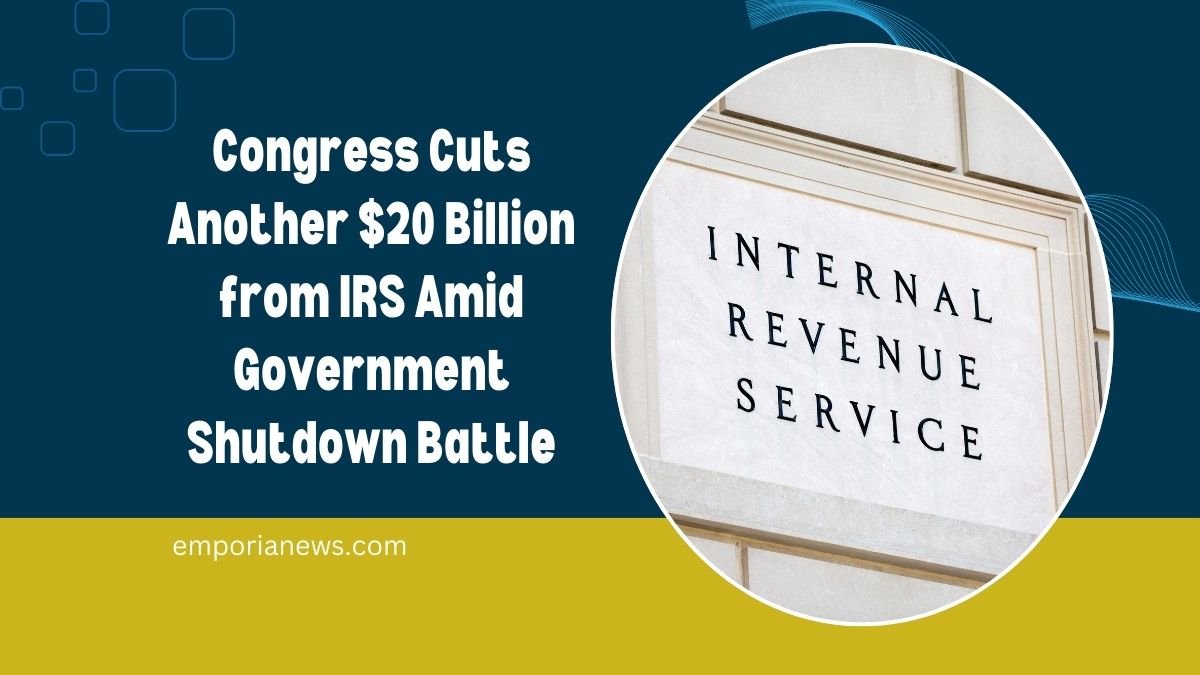Last week, Congress took a significant step by cutting an additional $20 billion from the Internal Revenue Service (IRS) budget. This reduction, part of efforts to avert a government shutdown, risks derailing President Joe Biden’s initiatives to enhance IRS customer service and increase scrutiny on high-income tax evaders. The decision underscores growing partisan debates over IRS funding and its implications for taxpayers and government revenue.
Background: Inflation Reduction Act Funding and Subsequent Cuts
In 2022, the Inflation Reduction Act (IRA) allocated $80 billion to the IRS to revamp its operations, enhance customer support, and intensify audits on wealthy individuals and corporations. However, Congress clawed back $20 billion in 2023 as part of a budget deal. Republicans, opposed to the additional funding, signaled their intent to seek further reductions.
Recent budgetary maneuvers led to another $20 billion cut, triggered by the continuation of previous fiscal policies. When Congress passed a continuing resolution (CR) to extend government funding, it retained all prior provisions, including last year’s IRS budget cuts. This automatic reduction, left unaltered in the new bill, highlights the fiscal strategies shaping legislative outcomes.
Republican Criticism of IRS Funding
Opponents of increased IRS funding have consistently argued that the additional resources unfairly burden taxpayers. Michael Palicz, Director of Tax Policy for Americans for Tax Reform, stated, “The increased money from the IRA for IRS agents was a declared shakedown on taxpayers to pay for Democrats’ spending.” He praised the recent cuts and anticipated more reductions in the future.
Republicans view the IRS funding rollback as a victory, framing it as a means to curb potential overreach and misuse of taxpayer money.
Implications of Reduced IRS Funding
Impact on Wealth Audits
According to Biden administration officials, scaling back the IRS budget will significantly hinder the agency’s ability to audit high-income individuals and large corporations. Officials estimate that the agency will conduct:
- 400 fewer audits of major businesses annually.
- 1,200 fewer audits of wealthy taxpayers each year.
The administration warned that diminished audit capabilities would add $140 billion to the national debt over the next decade, as tax evaders exploit reduced scrutiny.
Decline in Customer Service
IRS officials caution that the cuts will severely impact taxpayer support. Deputy Treasury Secretary Wally Adeyemo predicted dire outcomes:
- By 2026, the IRS will have the resources to answer only 20% of taxpayer calls, down from the current 85%.
- Average wait times for customer calls will balloon to 28 minutes, undermining taxpayer trust and efficiency.
Adeyemo stressed the dual impact of reduced funding: hampered enforcement against tax cheats and inadequate support for taxpayers striving to meet their obligations.
Progress Reversed
The IRA funding enabled substantial improvements in IRS operations. Before receiving additional resources, the agency faced a 24 million paper tax return backlog. Within a year of the funding boost, nearly all backlogged returns were cleared.
Moreover, customer service saw dramatic enhancements. In 2022, only 10% of taxpayer calls reached a live representative, with wait times spanning hours. By contrast, the IRS now answers over 85% of calls within three minutes, a transformation attributed to the IRA funding.
Former IRS Commissioner John Koskinen warned that underfunding the IRS is effectively a “tax cut for tax cheats.” He emphasized that diminished funding would reverse recent gains, leading to inefficiencies that disproportionately benefit tax evaders.
Political Context and Future Negotiations
Democratic Efforts to Reinstate Funding
Congressional Democrats, led by figures like Rep. Rosa DeLauro of Connecticut, have fought to preserve IRS resources during budget negotiations. However, they faced fierce Republican opposition, as the GOP identified IRS funding as a key issue. DeLauro acknowledged the challenges of securing support for IRS funding amidst intense negotiations, stating, “If you’re in a negotiation, you have to negotiate on these things.”
Republican Position on IRS Cuts
Republicans argue that rolling back IRS funding addresses public concerns over increased audits of middle-class taxpayers. Michael Palicz characterized the reductions as a rare bipartisan achievement, asserting that the IRS funding provision in Biden’s IRA has become politically unpopular.
Key Impacts of IRS Budget Cuts
| Aspect | Before IRA Funding | After IRA Funding | Projected Impact After Cuts |
|---|---|---|---|
| Audits of Major Businesses | Minimal scrutiny | Increased audits | 400 fewer audits per year |
| Audits of Wealthy Individuals | Limited enforcement | Enhanced oversight | 1,200 fewer audits per year |
| Customer Call Response Rate | 10% | 85% | 20% by 2026 |
| Wait Times | Hours-long delays | Less than 3 minutes | 28 minutes average wait by 2026 |
| Tax Return Backlog | 24 million returns | Nearly eradicated | Risk of returning to backlog levels |
This detailed overview highlights the profound consequences of reduced IRS funding on enforcement, customer service, and taxpayer confidence. The debate continues to center on the balance between fiscal responsibility and efficient tax administration.
FAQs
Why was the IRS funding cut?
Congressional Republicans opposed the additional funding allocated through the Inflation Reduction Act, arguing it could lead to overreach and unnecessary audits on middle-class taxpayers.
What is the impact of the funding cut on audits?
The IRS will conduct significantly fewer audits of large corporations and high-income individuals, allowing potential tax evaders to avoid scrutiny.
How will customer service be affected?
By 2026, only 20% of taxpayer calls are expected to be answered, with wait times increasing to an average of 28 minutes.




